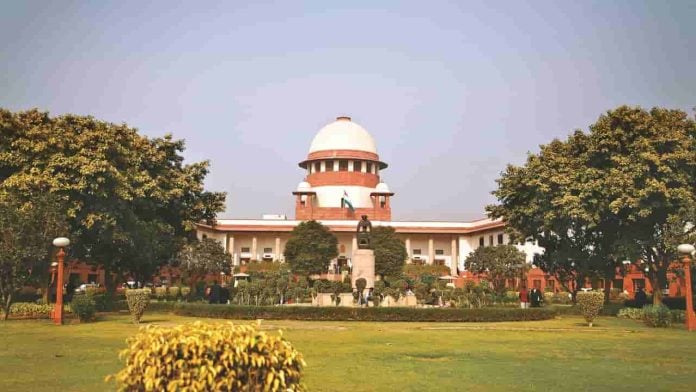Since the inception of the Supreme Court, there has only been a single precedent of the Apex Court quashing an appointment of a High Court Judge, after finding the recommendation ineligible.
The exceptional ruling happened in 1992 in the case of Kumar Padma Prasad vs Union of India and Ors, wherein the Apex Court quashed the appointment of one K.N. Srivastava as Judge of the Gauhati High Court, before he took oath.
The verdict has been cited in a writ petition challenging the appointment of Advocate L. Victoria Gowri as an Additional Judge of the Madras High Court on the grounds that she indulged in hate speeches against religious minorities.
Appearing for the petitioners, Senior Advocate Raju Ramachandran mentioned the Kumar Padma Prasad case before the Bench led by Chief Justice of India D.Y. Chandrachud, seeking urgent listing in the case.
The Counsel submitted that the controversy in the 1992 case arose after a section of the Bar objected to the appointment of Srivastava, who was mired in corruption allegations, on the ground that he has never practised as an Advocate and has never held a judicial office.
The petition contended that Srivastava did not satisfy the basic eligibility prescribed under Article 217 of the Constitution to be a High Court Judge.
It said Srivastava was actually a Secretary level officer in the Law and Judicial Department of Mizoram Government and in that capacity, was a member of certain Tribunals and Commissions.
When a lawyer filed a writ petition challenging his appointment, the Gauhati High Court through an interim order, had directed that the President’s warrant of appointment for Srivastava should not be given effect to.
The High Court further directed the Central Government to reconsider his appointment. The case got ultimately transferred to the Supreme Court, added Ramachandran.
He said the Supreme Court had then ruled that for the first time in the post-independent era, the Court was seized of a situation where it had to perform the painful duty of determining the eligibility of a person appointed as Judge of a High Court by the President of India and who was awaiting to enter his office.
The Counsel further said that though there were allegations of corruption and misappropriation of funds against Srivastava, the Court did not go into those aspects and decided the matter on the legal issue of whether the post held by him could be regarded as a judicial office within the meaning of Article 217(2)(a) of the Constitution.
As per Ramachandran, the three-Judge Bench of Justice Kuldip Singh, Justice P.B. Sawant and Justice N.M. Kasliwal found that Srivastava was holding a post under the control of the Executive and hence, it was not a judicial office.
Noting that it had no material to show that Srivastava had presided over any court and conducted any trial or decided any civil cases, the Apex Court quashed the appointment of Srivastava as Judge of the Gauhati High Court.
The Supreme Court had then directed the Union of India and other respondents not to administer oath or affirmation under Article 219 of the Constitution to him.
Srivastava was also restrained from making and subscribing an oath or affirmation in terms of Article 219 of the Constitution and assuming office as Judge of the High Court.
Ramachandran submitted that in Victoria Gowri’s case, the petitioners were relying on this precedent to show that the doors of judicial intervention did not close after the issuance of appointment order for the Judge.
The Central government had notified Gowri’s appointment this afternoon, along with other Additional Judges.
The Bench led by CJI Chandrachud agreed to list the matter, stating that the Supreme Court Collegium had taken cognisance of the complaints made against Gowri, which came to its notice after her name was recommended.
The Counnsel further argued that certain ‘vital’ information was held back from the Collegium and hence the recommendation was made without an effective consultation.


